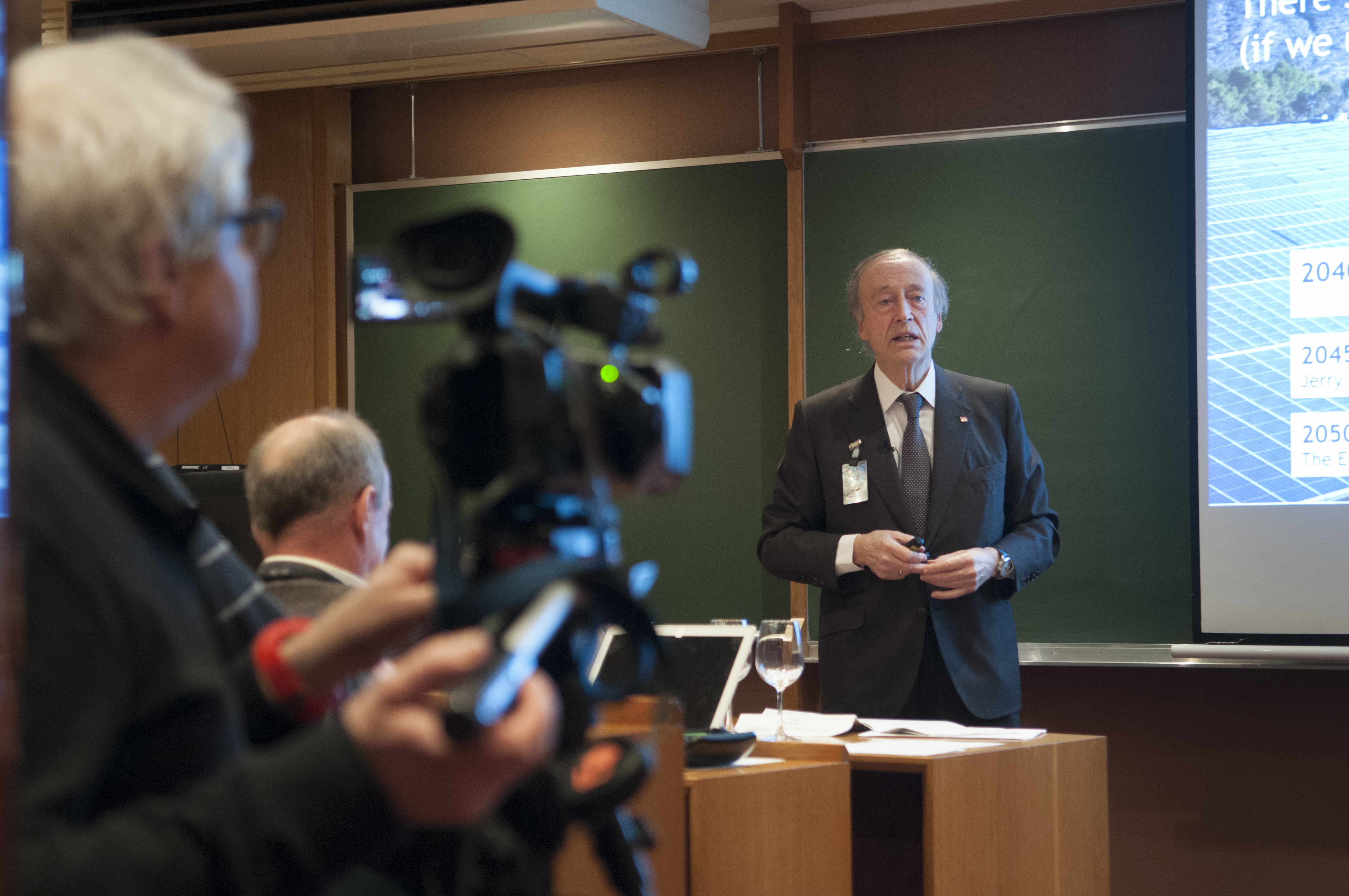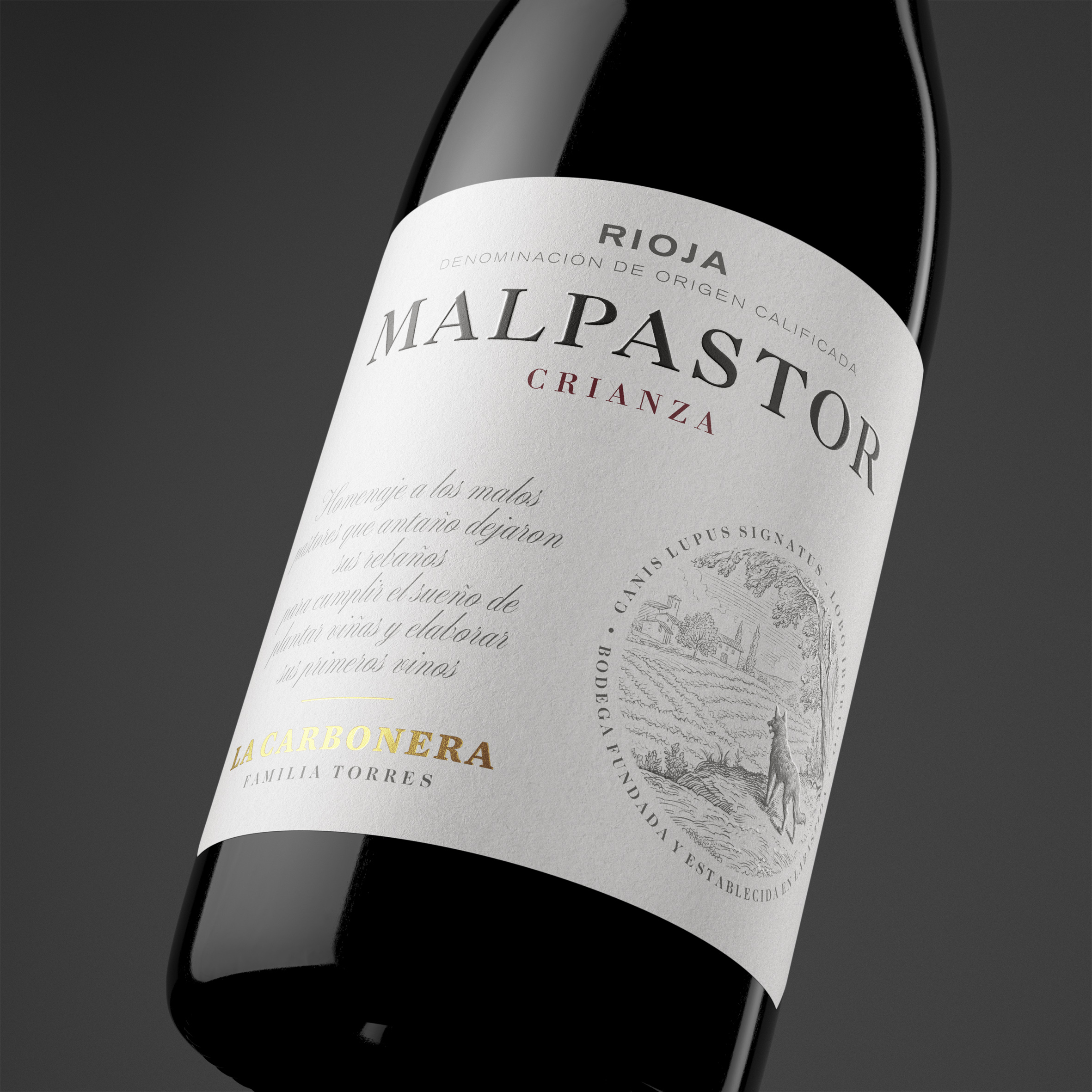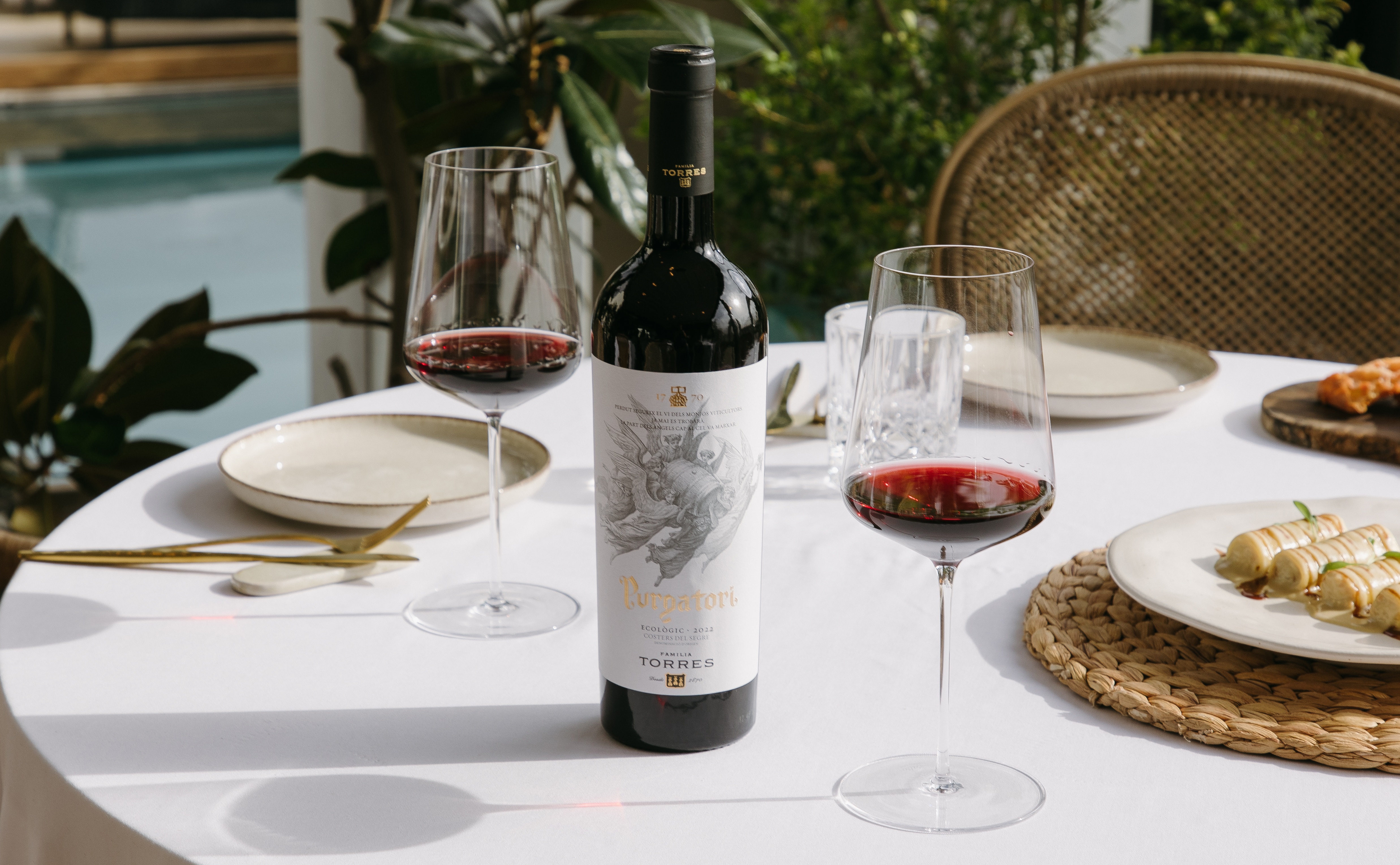Familia Torres held a climate change conference with international experts this past Friday, April 5, in Penedès. The in-depth discussion focused on the challenges that winegrowing faces due to rising temperatures, as well as the implementation of different adaptation and mitigation initiatives to reduce carbon emissions, with an emphasis on CCR (Carbon Capture and Reuse) technologies, and the urgent need for energy transition.
Under the heading “Familia Torres Climate Change Course,” the event brought together around 50 participants, including sommeliers, journalists, educators, and academics from eight countries, and featured the British experts Chris Goodall, an expert in the transition to a low-carbon economy and author of the book The Switch, and Dr. Jamie Goode, an expert in wine communication. Marta Subirà, the Catalan government's Sustainability and Environment Secretary, brought the event to a close.
Miguel A. Torres, the President of Familia Torres and member of the family's fourth generation, opened the conference with an overview of the Torres & Earth program, which the winery implemented in 2008 in response to the evidence of climate change. The goal was to reduce the winery's carbon emissions per bottle by 30% by 2020, and the initiative has seen investments of more than 15 million euros to fund both mitigation and adaptation measures. According to Miguel A. Torres, “we have to decarbonize the economy in order to contain the global temperature increase at 1.5 degrees between 2030 and 2040, and this requires the involvement of all companies, industries, and individuals.”
The President of Familia Torres sees the implementation of CCR technologies as the future, not only to prevent CO2 emissions, but to reduce gases in the troposphere which are responsible for global warming. “We plan on implementing this type of technology at the winery as of next year,” Torres added, “The idea is to capture 10% of the CO2 released during wine fermentation, which the plant previously absorbed during its growth cycle, and give it an alternative use.”
The fact that wineries have CO2 at their disposal during fermentation—CO2 that is considered “pure”—is precisely the reason why Familia Torres's climate change advisor, the oceanographer Dr. Miquel Rosell, remarked that “wineries can lead the fight against climate change, because they have everything that is needed to help reduce emissions: space to install renewable energies and the possibility of capturing fermentation-related CO2.”
Rosell stated that “even though the effects of global warming are unstoppable at this point, we have to try and contain them by curbing carbon emissions as soon as possible to not make matters worse, and here CO2 management is key.” As an example, he mentioned a circular economy in which the CO2 captured during fermentation produces the fuel that is then used to distribute the wine. This would be the role of CCR technologies, although the expert points out that “CCR only make sense in combination with renewable energies, but we also have to be able to store this energy.”
Of all the renewables, solar energy is the most abundant, which is why the future largely looks solar-powered. This is the thesis put forth by Chris Goodall, author of The Switch, who also believes it is necessary to develop ways of storing this energy—as hydrogen, for example—so that it can be used at any given moment. According to Goodall, “covering 2% of the planet's surface with solar panels would allow us to produce enough energy to meet global needs in 2050.”
“The challenge lies in speeding up the development of solar energy,” Goodall said, “This can be achieved in part by producing more silicon, and by changing the technology to make the process cheaper.” He was referring to perovskite, for example, a new material that is cheaper, more efficient, and easier to use than silicon and which could facilitate this energy revolution—a revolution that would also require decentralized energy production. During his talk, Goodall insisted that decarbonizing the economy is not only possible but affordable, which is why companies can play a significant role in bringing about this transformation, but that institutional support will also be needed.
The methanation technology presented by German company Exytron offers a tangible example of decarbonization. Klaus Schirmer, the project manager, explained that although power-to-gas technology wasn't new, “the challenge lay in improving its efficiency and making it accessible.” Exytron makes it possible to transform renewable energy into hydrogen, and use this hydrogen and CO2 from any source to produce methane, which can then be used as fuel. This is an option that Familia Torres is working on.
Mireia Torres, Familia Torres's Director of Knowledge and Innovation, presented the viticultural research projects the winery is carrying out in response to climate change. “Even under the most optimistic climate scenario, winegrowing will have to adapt,” she explained, “We are changing the way we manage the vineyards and the varieties we plant, seeking out cultivars that are resistant to drought and heat, and helping the more vulnerable ones with agronomic techniques to delay maturation and guarantee grape quality.”
These projects include the recovery of ancestral varieties, clonal and massal selection of grapevines, and field studies focused on precision viticulture and soil water capacity, to name a few. These studies fall under the Vitis Agrolab project, carried out in collaboration with IRTA at an experimental vineyard in Les Garrigues (Lleida).
Wine communication expert and biologist-by-training Dr. Jamie Goode gave the final talk. He believes that pressure by consumers is a key factor in getting companies to commit to environmental policies. According to Goode, “facts don't change the way people think, but stories can change behavior, so we have to tell good stories, and the wine world can connect with people on many levels.” The communications expert believes that what is urgently needed is to make carbon emissions socially inacceptable, whether they are produced by companies or individuals. For this reason, he finds the youth protests against climate change encouraging. “We have to stop borrowing from future generations,” he stated.
In the afternoon, Familia Torres presented some of the CCR technologies Torres has been working on with different companies and universities, especially the production of compressed natural gas (CH4 - methane) from CO2 released during wine fermentation. Exytron technicians demonstrated the technology by showing how methanation works at the winery's pilot plant. The resulting methane gas was used to power a forklift, which the company Jungheinrich had provided for the demonstration.
The presentations also featured other CCR technologies, such as a membrane for selective CO2 separation developed by ORCHESTRA SCI, or a carbon fixation system that transforms CO2 into inorganic carbonates. The latter is a well-known method, but Familia Torres's R&D department has taken it in a new direction to optimize the energy balance through seawater electrolysis powered by photovoltaic arrays.



